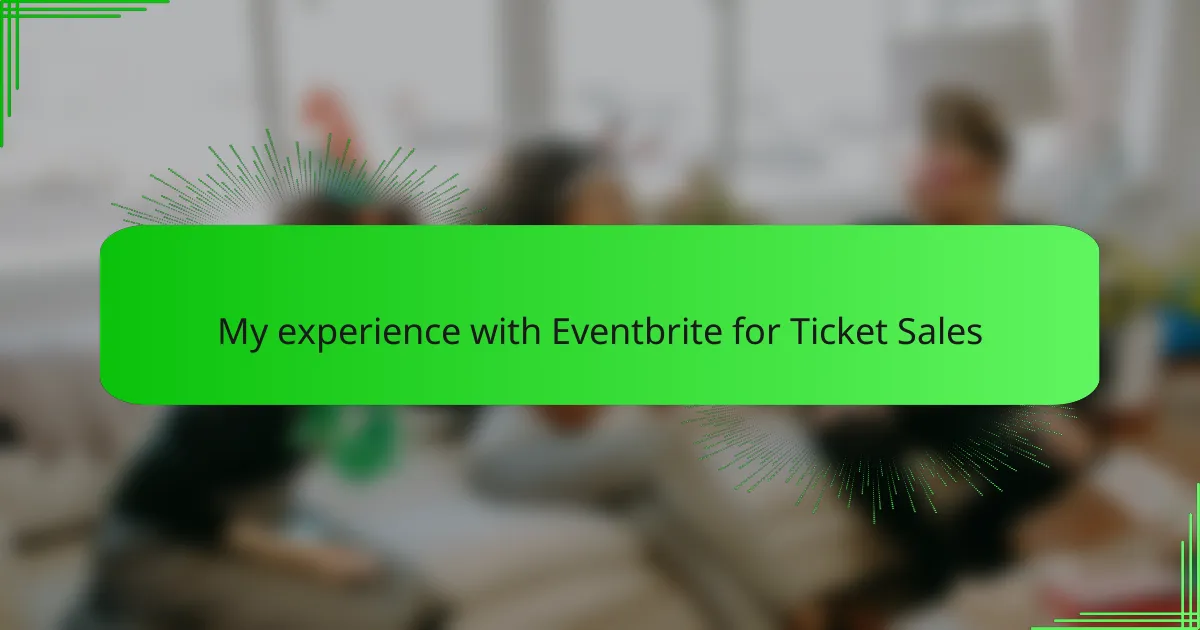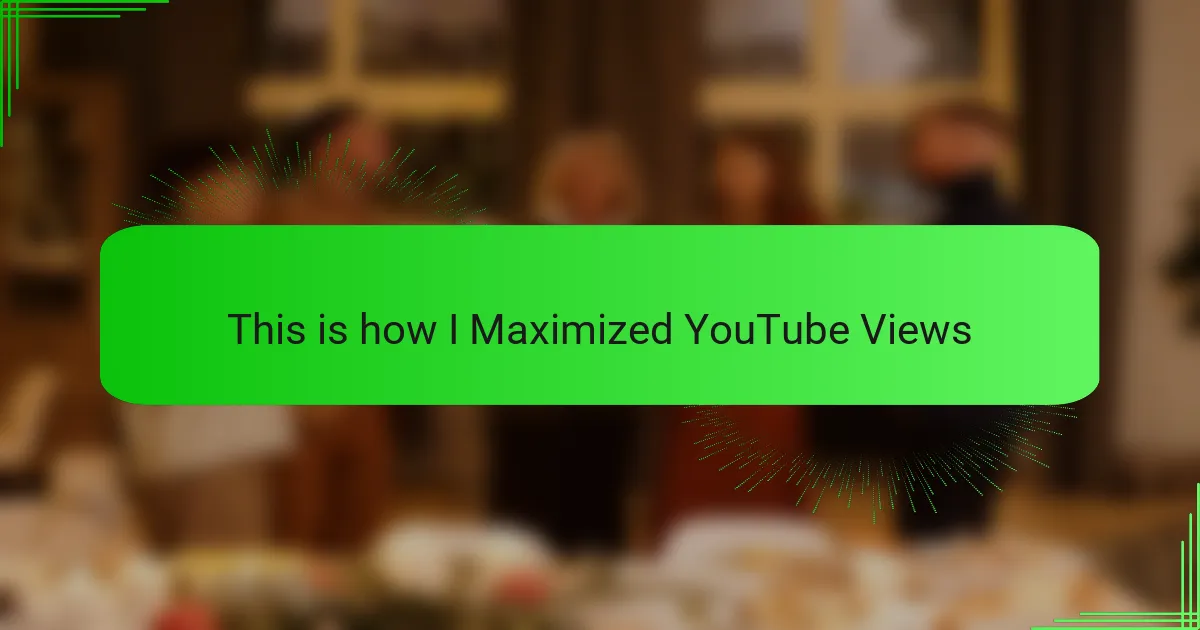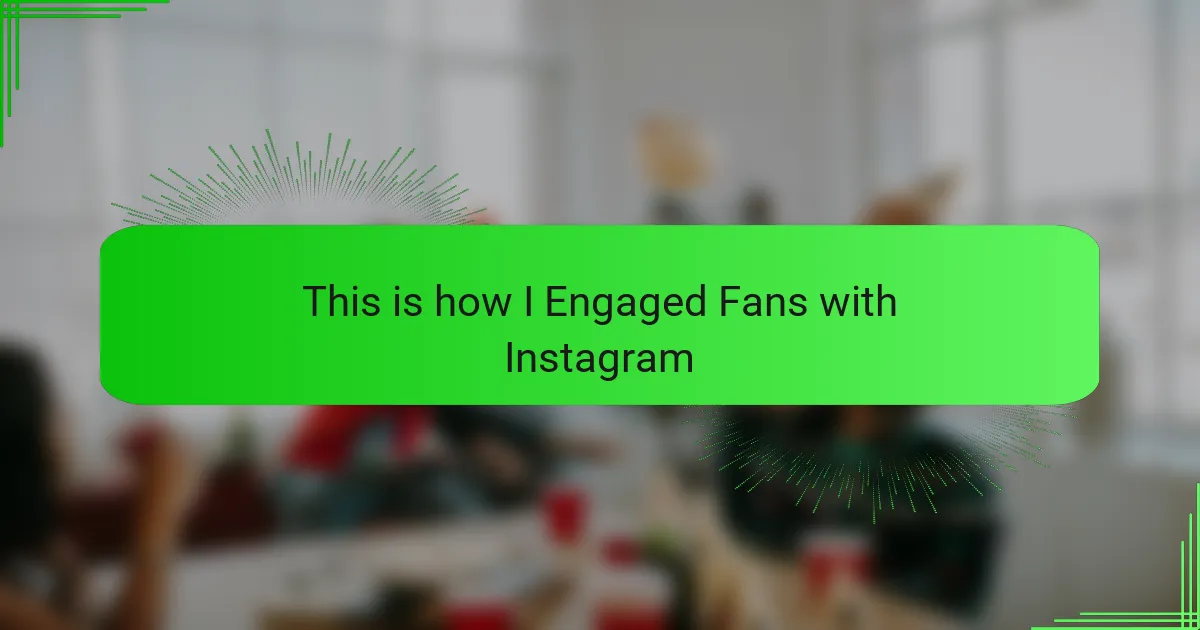Key takeaways
- Eventbrite offers user-friendly features like customizable event pages, ticketing systems, and real-time analytics, which enhance the event planning experience for organizers.
- Effective promotional tools and comprehensive analytics allow for better audience engagement and strategic marketing efforts.
- Implementing tiered pricing and special promotions can optimize ticket sales and cater to different audience segments.
- Challenges in managing expectations and navigating pricing strategies highlight the importance of careful planning and having contingency plans in place.
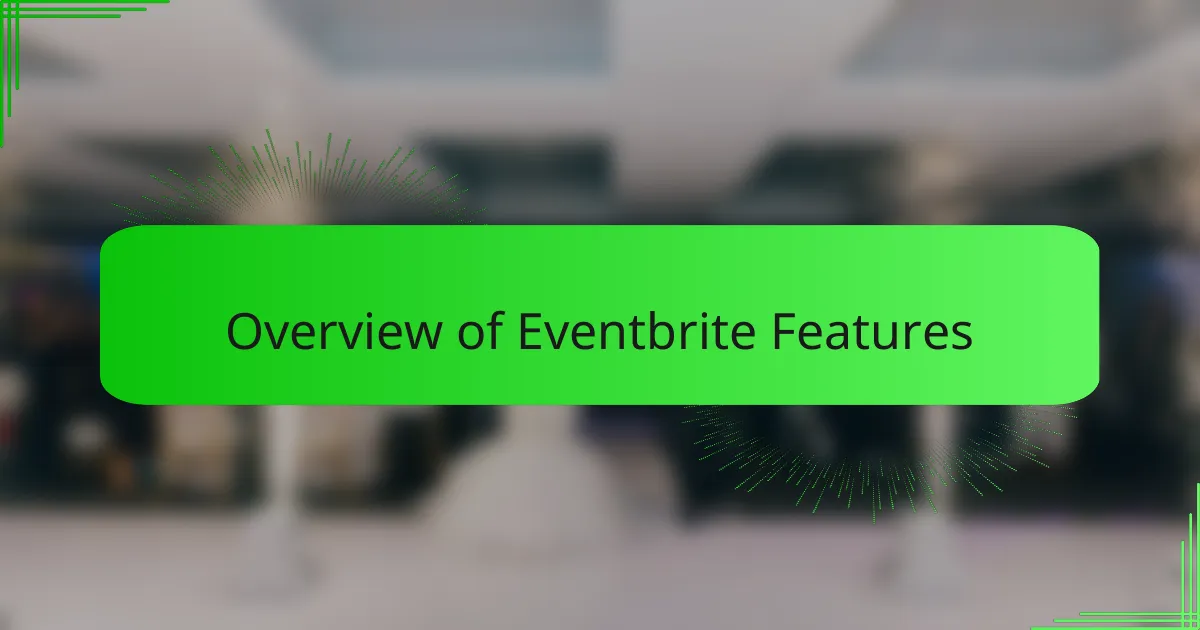
Overview of Eventbrite Features
When I first explored Eventbrite, I was pleasantly surprised by its user-friendly interface and powerful features tailored for event organizers. One standout aspect is the customizable event pages, which allowed me to showcase my comedian tours effectively. Additionally, the built-in ticketing system simplifies the sales process, letting me focus on what I do best—performing.
Another feature I found invaluable is the ability to track sales and audience engagement in real-time. This data informed my marketing strategies, and I could see which promotions resonated with my audience. Having such insights made me feel more connected to my ticket buyers and boosted my confidence in future events.
Here’s a quick comparison table of Eventbrite features:
| Feature | Description |
|---|---|
| Customizable Event Pages | Create unique pages that represent your brand and event style. |
| Ticketing System | Streamlined ticket sales directly from your event page. |
| Real-Time Analytics | Track ticket sales and audience engagement as your event progresses. |
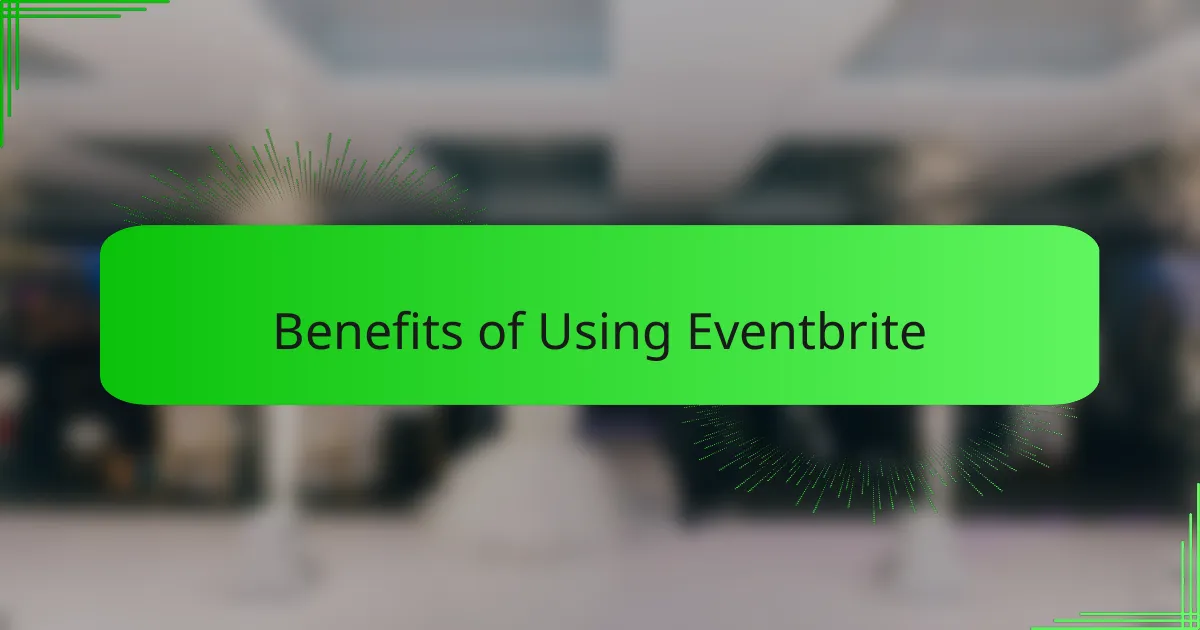
Benefits of Using Eventbrite
Using Eventbrite for ticket sales has been a game changer for my comedy tours. One of the biggest benefits I’ve experienced is the user-friendly interface. It makes setting up events quick and efficient, allowing me to focus on what I love most—performing and connecting with my audience.
I’ve also found that Eventbrite offers fantastic promotional tools. I remember the first time I used their email marketing feature; it felt empowering to reach out directly to my fans. This not only increased ticket sales but also built a stronger relationship with my audience.
Moreover, the analytics provided by Eventbrite are invaluable. After my last show, I was able to analyze ticket sales trends and re-engage with fans who had attended before. It’s almost like having a personal assistant dedicated to growing my comedy brand.
| Feature | Eventbrite |
|---|---|
| User-Friendly Interface | Yes |
| Email Marketing | Yes |
| Analytics Tools | Yes |
| Mobile Access | Yes |
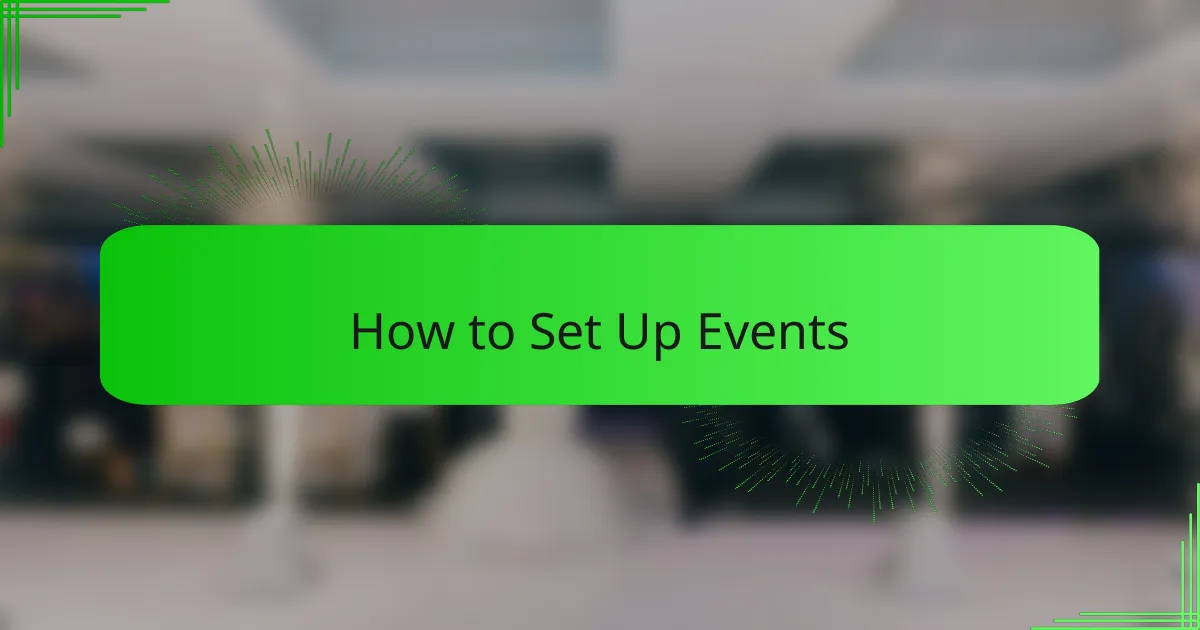
How to Set Up Events
Setting up events on Eventbrite is quite straightforward and can be a rewarding experience. I remember the first time I created an event for a comedy show; I was a bit anxious, but the process was surprisingly simple. You just need to fill in the details like event title, date, and location, and then you’re on your way to promoting your show.
To ensure everything goes smoothly, here’s a quick checklist to follow while setting up your event on Eventbrite:
- Choose a catchy event title.
- Fill out the event description with engaging details.
- Select the date and time for your performance.
- Set the location; if it’s virtual, include access details.
- Decide on ticket types (e.g., early bird, VIP).
- Set your ticket prices and payment options.
- Customize your event page to reflect your style.
- Review all details before publishing.
These steps just helped me create a space where my audience could connect with the event, which is the most crucial part of promoting any comedy tour!
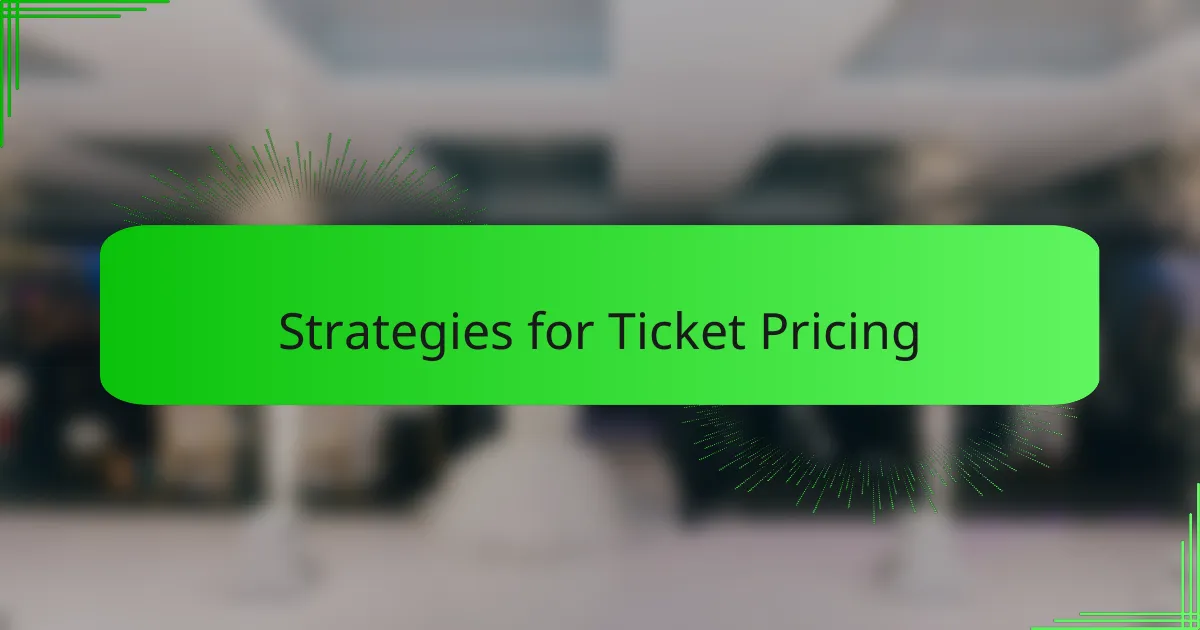
Strategies for Ticket Pricing
When it comes to ticket pricing, I’ve learned that finding the sweet spot can make or break a show. Initially, I was too eager to keep prices low to attract more attendees, but I quickly realized that undervaluing my work wasn’t sustainable. I’ve had moments where I’d set a price based on what I thought would appeal to the audience, only to find that a slightly higher price point communicated the value of my performance much more effectively.
One effective strategy I’ve implemented is tiered pricing. Offering different price levels allows fans to choose based on their budget while also creating a sense of exclusivity for higher tiers. Here are some pricing strategies I’ve found beneficial:
- Early Bird Discounts: Encourage prompt purchases by offering lower prices for a limited time.
- VIP Packages: Create exclusive experiences, like meet-and-greets for higher-ticket buyers.
- Dynamic Pricing: Adjust prices based on demand and time until the show, similar to airline ticket models.
- Group Discounts: Attract larger crowds by providing deals for bulk purchases.
- Special Promotions: Use social media or email newsletters to offer flash sales or special codes.
These strategies have helped me optimize my ticket sales and make my shows more successful.
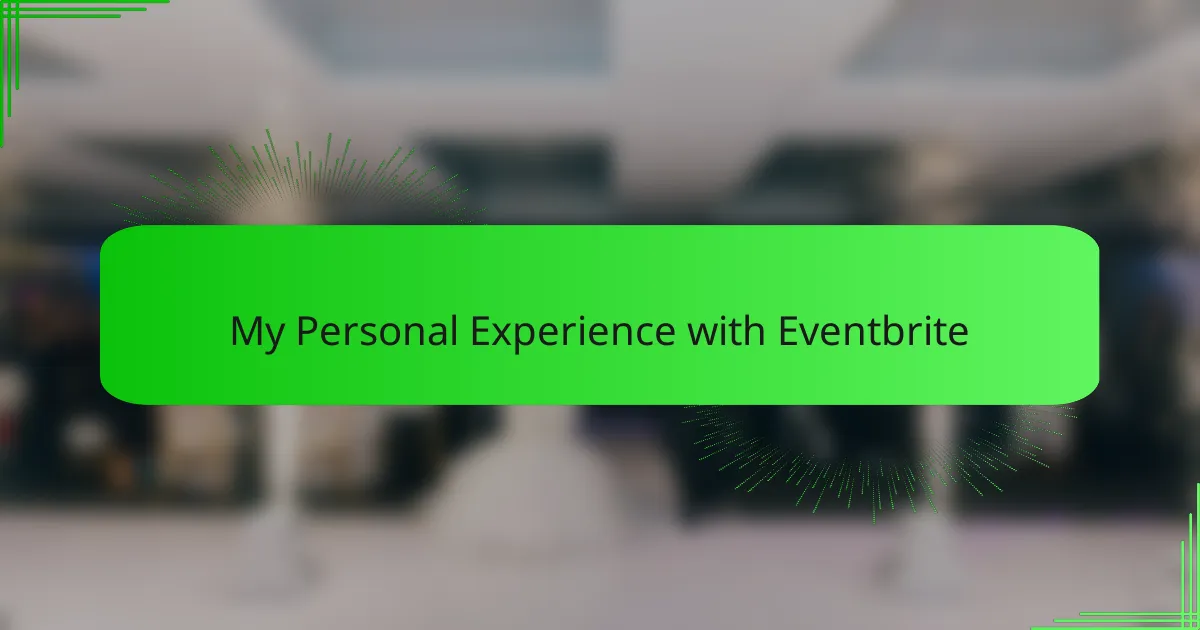
My Personal Experience with Eventbrite
When I first used Eventbrite to sell tickets for one of my comedy shows, I was pleasantly surprised by how user-friendly the platform was. Setting up the event was straightforward, and I appreciated the customizable options that allowed me to match the event’s theme. The excitement of seeing my ticket sales grow in real time was truly exhilarating!
What stood out for me was the integration with social media. Sharing the event on platforms like Facebook made promoting my show feel effortless. I vividly remember the buzz on the day of the event when my friends and fans were posting about it online, creating a sense of community that I cherish deeply.
Here’s a comparison table that captures some key aspects of Eventbrite based on my usage:
| Feature | Experience |
|---|---|
| User-Friendliness | Very easy to set up and navigate |
| Customizability | Options to match my event’s theme |
| Social Media Integration | Great for promotional outreach |
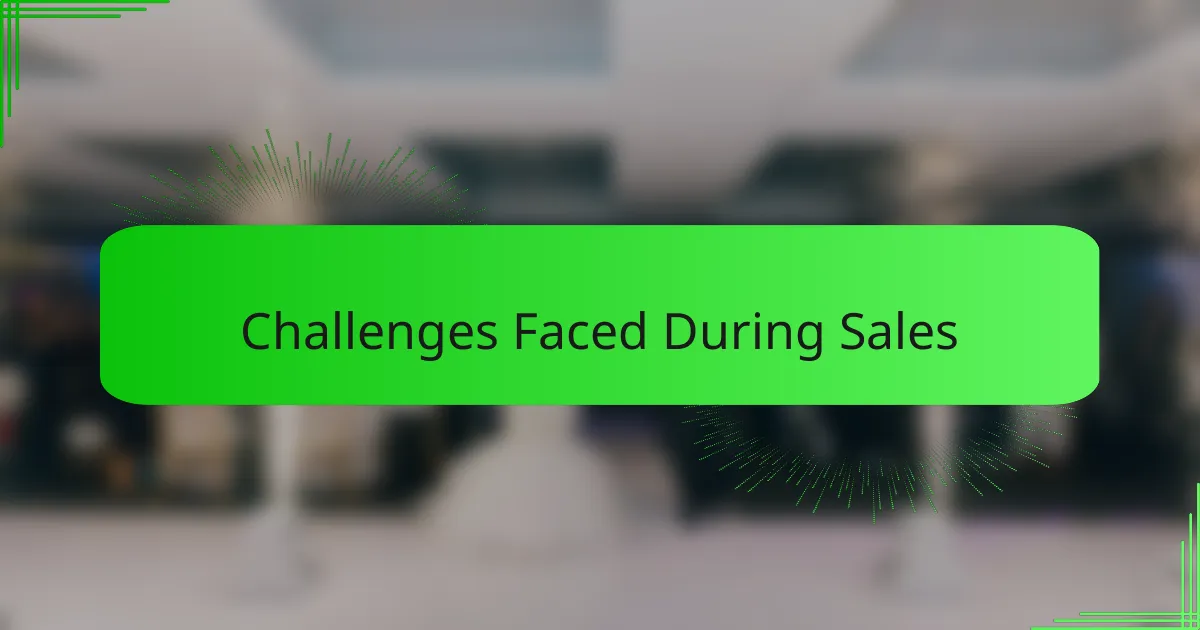
Challenges Faced During Sales
One notable challenge I faced during ticket sales was managing expectations. I vividly recall a particular event where I anticipated a full house based on previous sales figures, but ticket purchases fell short of my expectations. It was disheartening to see the numbers fluctuate, leading me to question my promotional strategies. Has this ever happened to you? It truly makes you rethink how you engage with your audience.
Another obstacle I encountered was the complexity of pricing strategies. Initially, I wasn’t sure how to position my tickets in a way that would appeal to different audience segments. I remember experimenting with various price points and discounts, feeling somewhat overwhelmed. It took time and careful analysis to find pricing that reflected the value of my shows while also driving sales.
Finally, there were moments when technical issues arose right before an event. I once found myself frantically troubleshooting a glitch on the ticketing page just days before my show. This added a layer of stress that no artist wants during the lead-up to a performance. It reinforced for me the importance of having a backup plan to ensure that ticket sales run smoothly.
